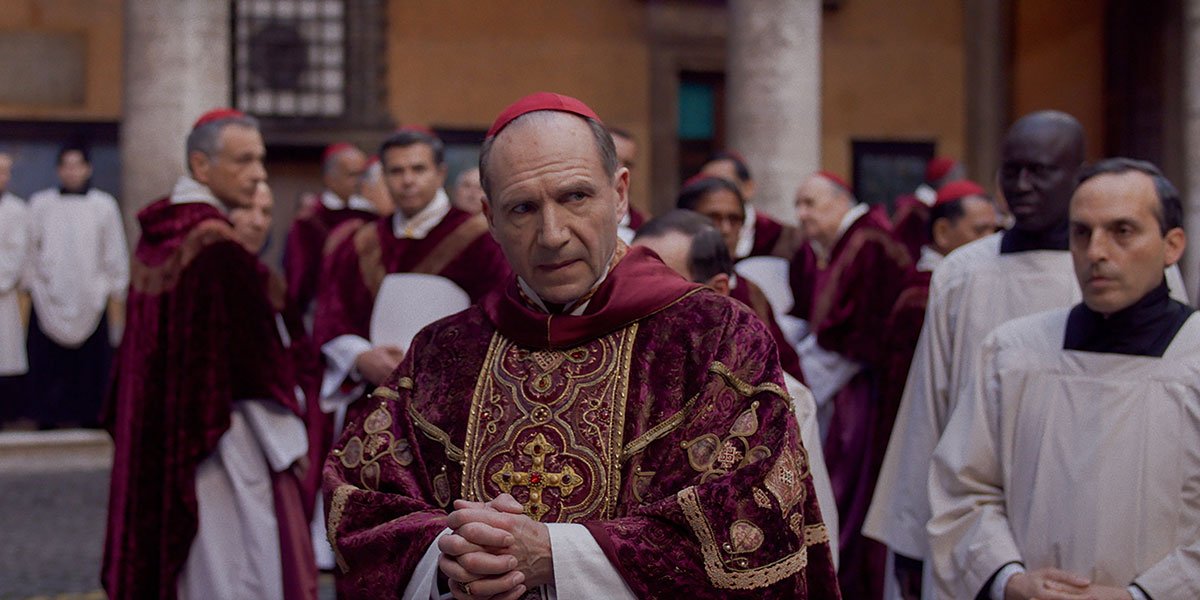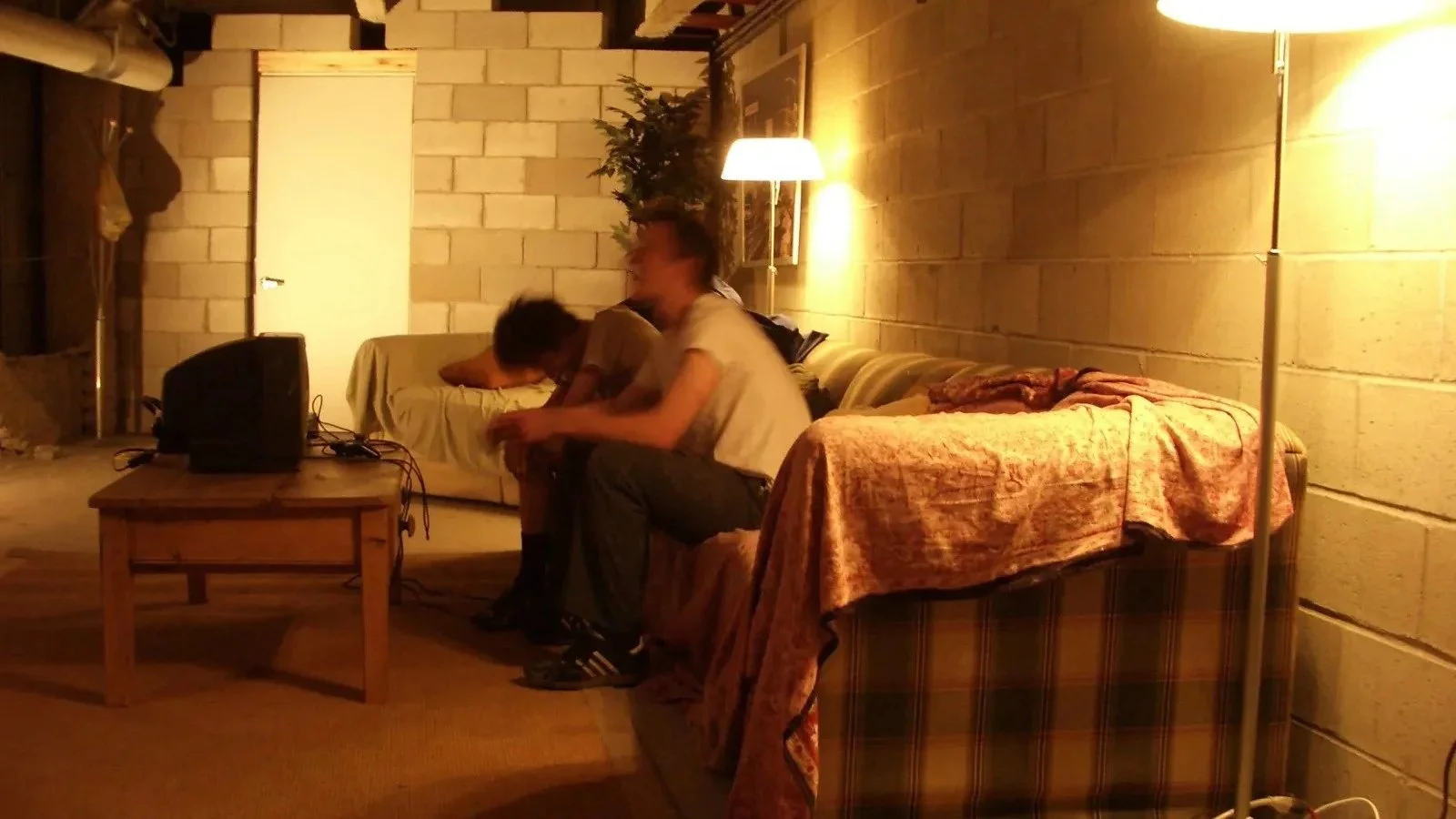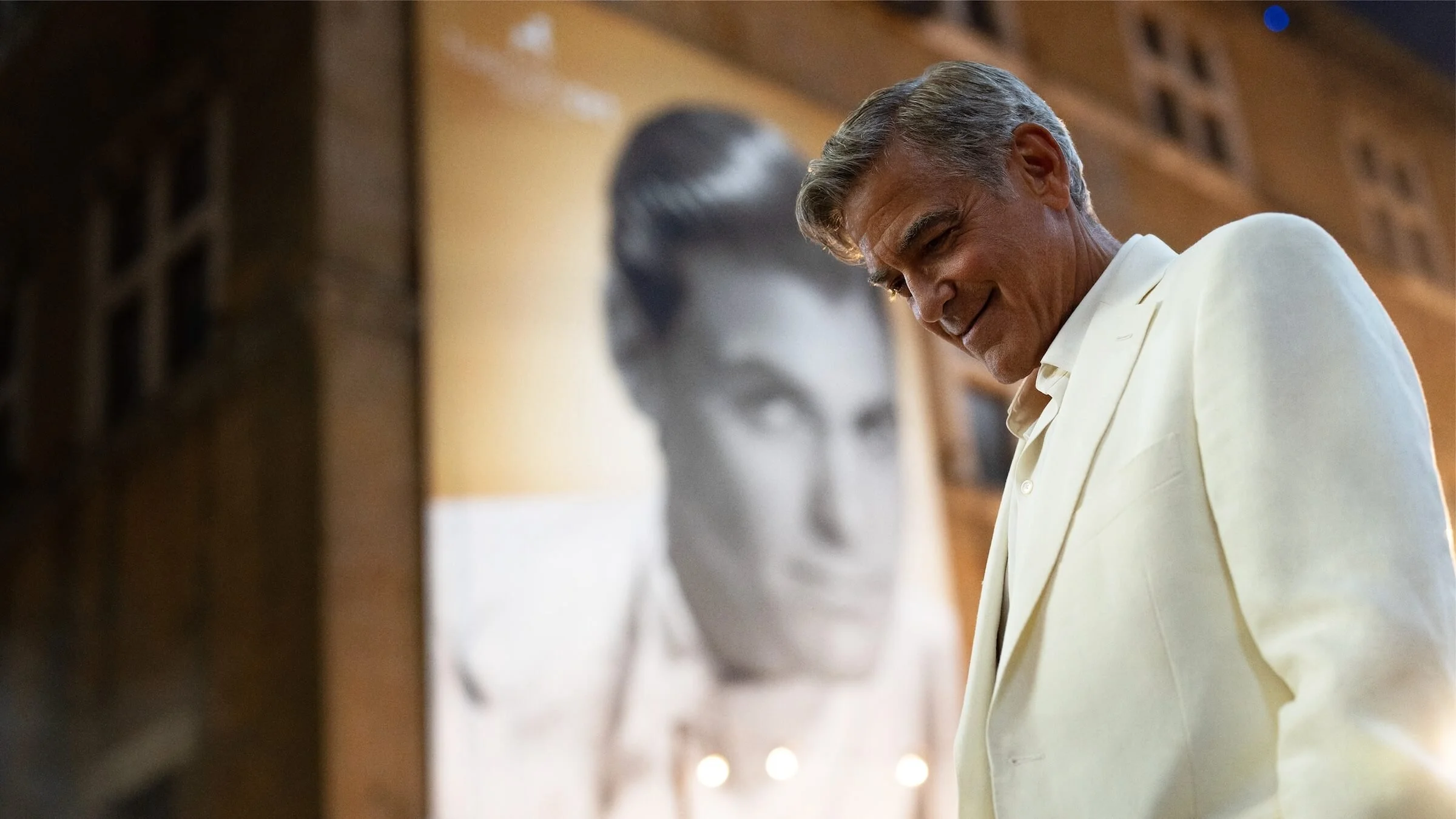Review: Conclave (2024)
Conclave is oh so serious and oh so silly in a way that only a movie adapted from a paperback thriller can be. Set during a papal conclave, the mystery thriller dabbles in politics and theology, but it’s mostly about self-serious pulp. It’s compulsively watchable, well acted, and ends with a truly goofy final twist that clarifies just how silly the material has been the entire time. I enjoyed it a lot, but let’s not kid ourselves about its profundity.
The latest film from All Quiet on the Western Front director Edward Berger, the film tasks Ralph Fiennes’ Cardinal-Dean Thomas Lawrence with running a papal conclave to elect a new pope. There are four major contenders for the papal crown: the liberal American, Bellini (Stanley Tucci), the moderate Canadian, Tremblay (John Lithgow), the socially conservative Nigerian, Adeyemi (Lucian Msamati), and the reactionary Italian, Tedesco (Sergio Castellitto). Fiennes’ Lawrence hopes that Bellini will win to stave off the pre-Vatican II traditionalism of Tedesco, but his simple politicking gets swept aside when he realizes a conspiracy may be afoot to withhold vital information from the cardinals. Accordingly, there are midnight investigations, secret confrontations, and lots and lots of hushed discussions about who to vote for and why.
It’s fun watching all these stern men plotting against each other, but Conclave is most compelling as a procedural. The movie goes into great detail about the process of papal enclave, documenting its rituals and rules. It starts this approach right after the death of the pope, when the papal ring is pried from his finger and the signet chiselled off, symbolically removing him from the seat of the Holy See. It continues through the preparatory period in the Vatican, watching nuns preparing food and the various monseigneurs, archbishops, and lesser priests organizing rooms and all the necessary processes that allow them to sequester the cardinals from the outside world. Cellphones are confiscated. Cigarettes are disposed of. We’re engrossed by the pomp and circumstance of the whole proceeding, which offers a window into this elegant, mysterious world.
The acting is very good as well. Ralph Fiennes is wonderful in the lead, his personal arc charting a crisis of faith, where the process of conclave has the possibility of making or breaking his faith in the Church. Fiennes is so good with language (most Shakespearean actors are), but he’s also great at letting us watch the decision making playing out in his mind. Quiet scenes of him looking at one character and then another are riveting because there’s so much discernable deliberation behind his blue eyes. It’s as if there’s a whole conclave occurring in his mind.
The supporting cast is sturdy as well. Stanley Tucci is principled but more than a little bitchy in a delightfully fun way. Sergio Castellitto goes big with his traditionalist rants, while adding a touch of cool with his vapes and thick glasses, as if Marcello Mastroianni had become a reactionary cardinal, but kept up his style. John Lithegow is especially good here as he struggles to hide his naked appetite for power, despite his loud demonstrations of reasonableness and decorum. There is some political commentary on wider, non-Catholic political dynamics in the 21st century at work here, with these three individuals in particular standing in for the liberal, the conservative, and the moderate within American politics, but there’s not enough depth to warrant a deeper investigation. The political commentary gestures at the real world without clarifying it, a thematic seasoning for the potboiler.
But this is a potboiler at heart. Don’t let the Oscar campaign, the muted colours, the thrumming score, and the tasteful performances fool you. The narrow depth of focus close-ups of Ralph Fiennes’ furled brow, the stern lectures, the hushed tones try to cover up the silliness of the plotting, but ultimately buckle under the pressure of the twisty goofiness inherent in stories of this sort. The plot becomes truly absurd the further you get into this and when one too many explosions happen at the most opportune time for dramatic impact, you start to question just how serious this movie really is.
There’s a long tradition of movies of this sort, ones that take a pulp novel and attempt to transform it into high art. There are many successful examples of this approach, notably Francis Ford Coppola’s The Godfather and David Fincher’s The Girl with the Dragon Tattoo, but those films are made by masters. Berger is sturdy, but he’s no master, more a European journeyman with a tasteful eye and a muted palette that affords some class to a relatively campy proceeding. Keep in mind what kind of film you’re watching and the experience is rather pleasant. But make no mistake: Conclave is pulp, through and through.
7 out of 10
Conclave (2024, UK/USA)
Directed by Edward Berger; written by Peter Straughan, based on the novel by Robert Harris; starring Ralph Fiennes, Stanley Tucci, John Lithgow, Sergio Castellitto, Isabella Rossellini, Lucian Msamati, Carlos Diehz, Brian F. O’Byrne.



Joe Carnahan’s cop thriller starring Matt Damon and Ben Affleck is an enjoyable whodunnit.